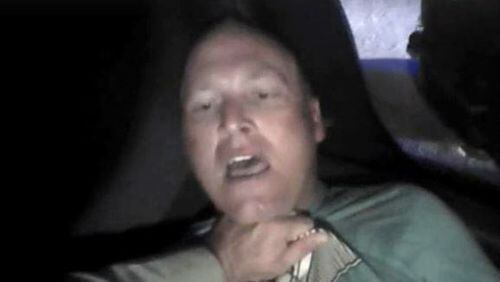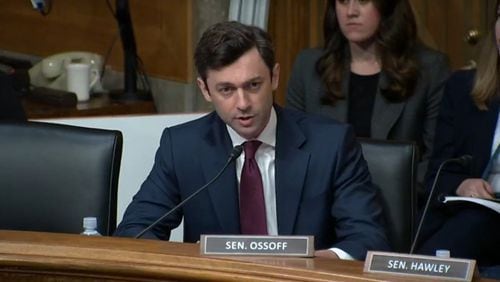The death of a mentally ill man at the hands of two Coweta County sheriff's deputies and an EMT last November, all captured on video from the deputies' body cameras, provokes a troubling question: did Chase Sherman have to die?
Strange behavior, after all, is not a crime. But the Sherman case illustrates a difficult, split-second choice for cops: criminal or not, if a person poses a danger to himself or others, how should that danger be contained?
“When you have a fighting suspect, whether it’s a mental health issue or not, you have to restrain that person,” DeKalb County police Maj. Steven Fore said. “It’s hard for someone to conceive dealing with someone that’s not responding to pain. They don’t respond to verbal commands. How do you explain that to someone?”
Without proper training, police officers may arrest, injure or even kill people who represent a threat not because of a crime but because of an illness. As much as 20 percent of the population has a mental disorder, leading more law enforcement agencies to train officers on how to defuse and de-escalate tension, rather than resort to force with the mentally ill.
Large metro Atlanta police agencies require every prospective officer undergo 40 hours of Crisis Intervention Team training, or CIT, that focuses specifically on cases beyond the scope of typical police work.
The DeKalb County Police Department added CIT training to the 26-week police academy curriculum last year, according to Fore. The department has a mental health unit that works from 2 p.m. to midnight, and the officer in the unit is accompanied by a nurse, Fore said. Still, it can be hard even for trained officers to be prepared for every situation.
“Sometimes the people calling don’t know exactly what they’re dealing with,” Fore said.
Other major operations also acknowledge the challenges of mentally ill. Gwinnett County officers are also all trained to handle mental health situations, Cpl. Deon Washington said. Other professionals may be called to the scene if needed, he said.
And in Atlanta, Grady EMS created the Upstream Crisis Intervention Group in 2013 to offer better care to those with mental disorders. Units are staffed with a paramedic, licensed counselor and a social worker. If someone is violent, Atlanta police officers may also be dispatched, according to Officer Lukasz Sajdak.
‘Help de-escalate any situation’
You can’t see Jamie Griffin’s illness.
One minute, the 34-year-old is chatting away with police officers attending a classroom training session. The next, she’s in front of the room telling her story. At age 14, Griffin was first diagnosed with borderline personality disorder and bipolar disorder, two of the mental illnesses she lives with.
“To see their expressions on their faces, it’s amazing,” Griffin told The Atlanta Journal-Constitution.
Griffin, who has a dealt with a variety of mental illnesses, is in recovery and thriving. But on her darkest days, Griffin’s family has had to call 911 for help. Each time, her mother, Bonnie Jones, immediately explained her daughter’s mental health history so that officers trained in that area would be sent to help.
The Cherokee County Sheriff’s Office, working with the National Alliance on Mental Illness, leads one of more than 2,700 CIT programs in the country, according to Sgt. Charles Westbrook. Twice a year, weeklong training sessions are held for law enforcement, including probation officers and even security guards, focusing on mental health.
“We want to use communication skills to try to talk to these people so we don’t have to get to the point of using force,” Westbrook said. “These kinds of skills can help de-escalate any situation.”
People like Griffin speak to class participants, along with mental health professionals. One day, training participants visit community facilities to learn about options for those needing help. The curriculum also includes role-playing and learning about different scenarios.
“We’re usually the first on the scene,” Westbrook said. “And if the officer doesn’t know what he’s dealing with, he could misinterpret it. Just because something looks a certain away, doesn’t mean that’s what it is.”
About the Author






